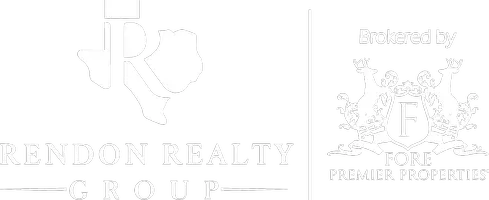Should You Buy an Existing Home or New Construction?
Make the smarter move—compare real costs, timelines, and trade-offs in minutes.
Torn between a move-in-ready charmer and that just-built, energy-smart beauty? Here’s the side-by-side answer—so you can buy with confidence.
A practical guide comparing new construction and pre-existing homes—costs, timelines, warranties, neighborhoods, and how to choose for your family in the Texas Hill Country.
Pre-Existing vs New Construction Homes: Which Is Right for You?
- New construction shines for efficiency, low maintenance, and builder warranties—but usually costs more and takes longer.
- Pre-existing homes offer faster closings, character, established neighborhoods, and more room to negotiate on price.
- Decide by priorities: budget, timeline, neighborhood feel, energy costs, and how much customization you want.
Table of contents
New Construction: Pros & Tradeoffs
Quick answer: New builds deliver modern efficiency, minimal upkeep, and warranty coverage—but they often carry a higher sticker price and a longer wait before move-in.
Energy efficiency. Today’s windows, roofs, HVACs, and insulation can lower utility bills and keep temps steady year-round. That’s money back in your pocket—especially during Hill Country summers.
Minimal maintenance. With everything brand-new, your punch list stays short. Instead of weekend repairs, you can enjoy your home or explore Fredericksburg, Kerrville, and nearby trails.
Builder warranties. Many builders back structural and mechanical systems for multiple years, giving you predictable costs and peace of mind if something goes wrong.
Customization. Buy early in the process and you can choose finishes, layouts, and design details to match how your family lives.
Tradeoffs. New construction typically requires a longer timeline (often months) and can come with lot premiums, upgrade costs, and limited room for price negotiation.
Subtopic A
Spec vs. to-be-built. Spec homes (already under construction) can shorten timelines. To-be-built homes maximize customization but take longer and may carry more change-order costs.
Pre-Existing Homes: Pros & Tradeoffs
Bottom line: Existing homes move faster, often cost less up-front, and come in established neighborhoods—though they may need more maintenance and energy upgrades.
- Negotiating power: Individual sellers are usually more flexible on price and concessions than builders.
- Established neighborhoods: Mature trees, defined streets, and a built-in community vibe are common in older subdivisions.
- Faster move-in: You can close in weeks, not months—ideal if your timeline is tight.
Character & charm. Think hardwood floors, crown molding, built-ins, and architectural details that newer tract builds may not include.
Tradeoffs. Expect potential maintenance, higher utility bills until upgrades are made, and possible renovation costs to fit your style.
How to Choose for Your Family (Step-By-Step)
In practice: Rank your priorities, compare total cost of ownership, and match your timeline to the right path—then tour both options to confirm the fit.
1) List priorities. Energy efficiency, budget, neighborhood feel, timeline, or customization? Put them in order.
2) Compare total costs. Add up utilities, maintenance, likely renovations, warranties, and the higher up-front price typical with new construction. Note any HOA/STR rules that matter to your plans.
3) Consider timing. Need to move soon? Focus on existing homes. Able to wait? New builds can deliver exactly what you want.
4) Tour both. Walk model homes and established neighborhoods. Pay attention to street noise, commute times, and how the floor plan actually lives day-to-day.
5) Get local guidance. A Hill Country agent can flag hidden costs, builder reputations, and neighborhood nuances you won’t see online.
Sources
FAQs
Is new construction always more expensive?
Not always, but it often carries higher base prices, lot premiums, and upgrade costs. Compare total cost of ownership (including utilities and maintenance) to see the real difference.
How long does new construction usually take?
Build timelines vary by builder, weather, and materials. Many buyers see 6–12 months from contract to close; spec homes can shorten that.
Can I negotiate with a builder?
Yes—often on closing costs, upgrades, or rate buydowns—though base prices tend to be less flexible than resale homes.
What should I inspect on a pre-existing home?
Roof age, HVAC, foundation, plumbing, electrical, windows, and signs of moisture. Budget for near-term maintenance or upgrades if systems are older.
Which option fits Hill Country living best?
If you want mature trees and established streets, resale may win. If you want energy efficiency, warranties, and custom choices, new builds are strong—tour both to compare.
Have a Hill Country question?
I’m based in Fredericksburg and work across Gillespie, Kerr, Blanco, Kimble, Mason, Llano & Bandera. Let’s talk strategy.
Talk with Ryan